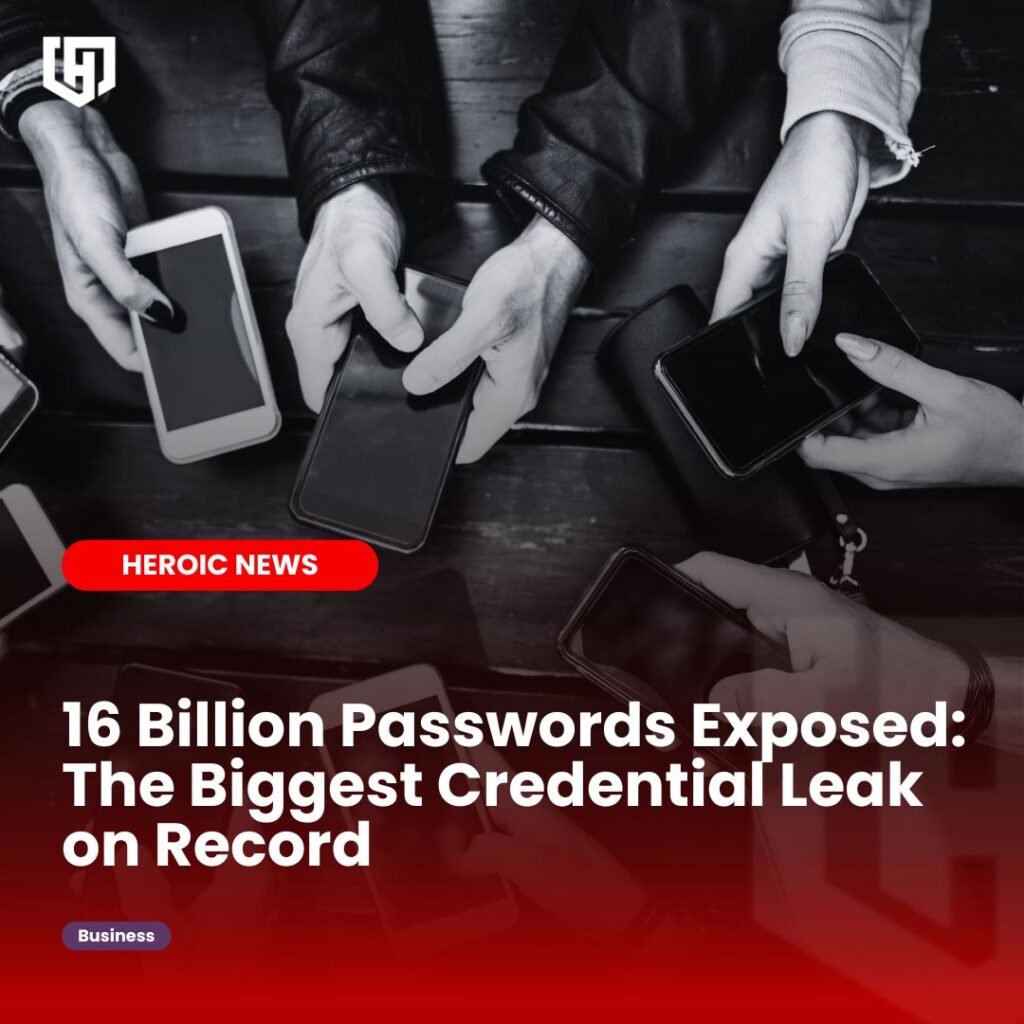Yahoo Announces Hack of 500 Million Users — The Largest Hack in History
Yesterday, Yahoo announced to the world that 500 million customer credentials were hacked back in 2014 — making it the largest hack in history. The announcement comes after a renowned hacker named “Peace” said that he was selling a Yahoo database of over 200 million credentials back in August for just over $1,800.
The hacker’s claim sparked national interest – forcing Yahoo to look further into the matter and ultimately resulting in yesterday’s announcement of a much larger data breach of 500 million.
The stolen database includes names, telephone numbers, dates of birth, email addresses and both encrypted and unencrypted passwords with security questions and answers.
Yahoo did not say if the breach affected only people with Yahoo accounts or also those who use the site for photo-sharing site Flickr or blogging platform Tumblr. HEROIC recommends that anyone with an account for any of Yahoo’s subsidiaries to take immediate action by scanning your email to see if your email has been compromised through HEROIC’s Email Security Scan.
The good news for those affected — if there is any — is that Yahoo believes that bank account numbers and credit card were not included in the stolen information.
Has Your Email Account Been Hacked?
See if your email has been compromised with the most powerful scan engine.
What You Should Do
Yahoo has stated that it will be notifying potentially affected users and taking steps to secure their accounts. In the meantime, here are some things that all Yahoo users should do immediately:
- Scan you email with HEROIC’s Email Security Scan Engine to see if your email has been compromised in any recent data breaches from over 1,400+ websites.
- Change your current password with a new, unique password or passphrase.
- Change your current security questions and answers.
- Enable two-step authentication on all sites that offer it.
- Think of other websites in which you may have used compromised credentials and change them.
- Check and monitor your email for suspicious behavior.
- Do not click on any strange emails or links within emails – especially if they claim to be from Yahoo.
- Do not give away any personal information through any unsolicited communication.
Once hackers have access to ID and password information for one system like Yahoo, they routinely try the same combination against multiple other online platforms in an attempt to see which ones they can either easily or brute force their way into.
Many hackers will also use large data breaches for phishing / spam attacks, sending emails that make it seem as if a legitimate company is asking victims to supply personal information or click through to a questionable link that often leads to the installation of malware and viruses.
When in doubt, contact Yahoo directly to report any suspicious activity or questionable emails.
Yahoo’s Full Statement
By Bob Lord, CISO
“We have confirmed that a copy of certain user account information was stolen from the company’s network in late 2014 by what it believes is a state-sponsored actor. The account information may have included names, email addresses, telephone numbers, dates of birth, hashed passwords (the vast majority with bcrypt) and, in some cases, encrypted or unencrypted security questions and answers. The ongoing investigation suggests that stolen information did not include unprotected passwords, payment card data, or bank account information; payment card data and bank account information are not stored in the system that the investigation has found to be affected. Based on the ongoing investigation, Yahoo believes that information associated with at least 500 million user accounts was stolen and the investigation has found no evidence that the state-sponsored actor is currently in Yahoo’s network. Yahoo is working closely with law enforcement on this matter.
We are taking action to protect our users:
We are notifying potentially affected users. The content of the email Yahoo is sending to those users will be available at https://yahoo.com/security-notice-content beginning at 11:30 am (PDT).
We are asking potentially affected users to promptly change their passwords and adopt alternate means of account verification.
We invalidated unencrypted security questions and answers so they cannot be used to access an account.
We are recommending that all users who haven’t changed their passwords since 2014 do so.
We continue to enhance our systems that detect and prevent unauthorized access to user accounts.
We are working closely with law enforcement on this matter.
We encourage our users to follow these security recommendations:
Change your password and security questions and answers for any other accounts on which you used the same or similar information used for your Yahoo account.
Review your accounts for suspicious activity.
Be cautious of any unsolicited communications that ask for your personal information or refer you to a web page asking for personal information.
Avoid clicking on links or downloading attachments from suspicious emails.
Additionally, please consider using Yahoo Account Key, a simple authentication tool that eliminates the need to use a password altogether.
An increasingly connected world has come with increasingly sophisticated threats. Industry, government and users are constantly in the crosshairs of adversaries. Through strategic proactive detection initiatives and active response to unauthorized access of accounts, Yahoo will continue to strive to stay ahead of these ever-evolving online threats and to keep our users and our platforms secure.
For more information about this issue and our security resources, please visit the Yahoo Security Issue FAQs page, https://yahoo.com/security-update, which will be up beginning at 12pm (PDT)”






/includes/qr-code.png)